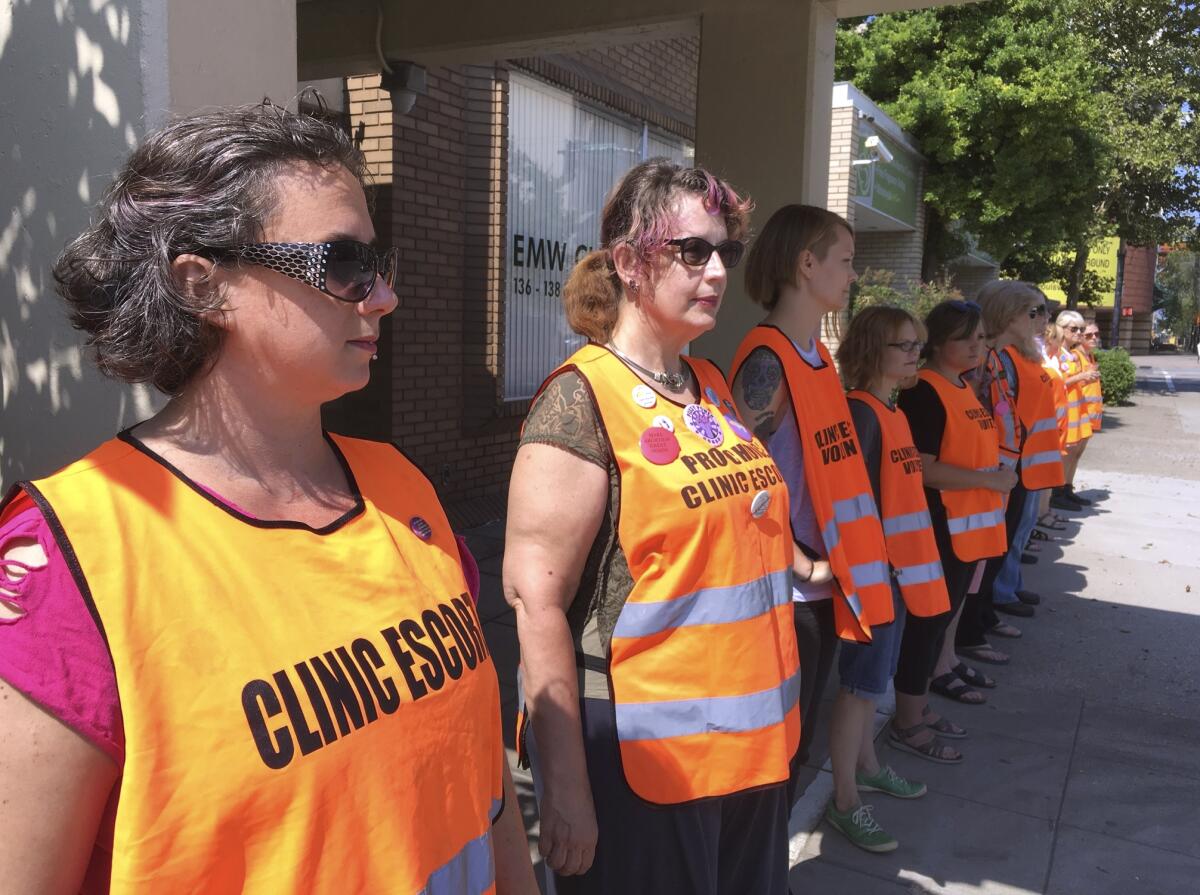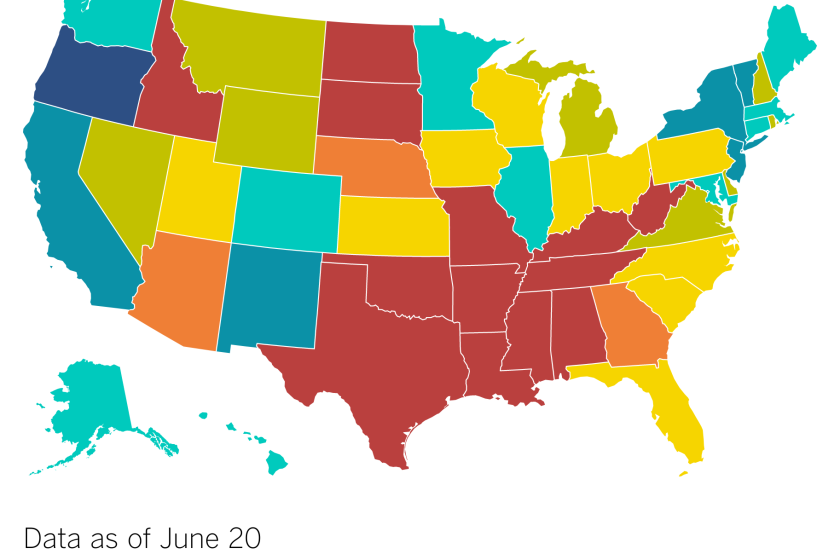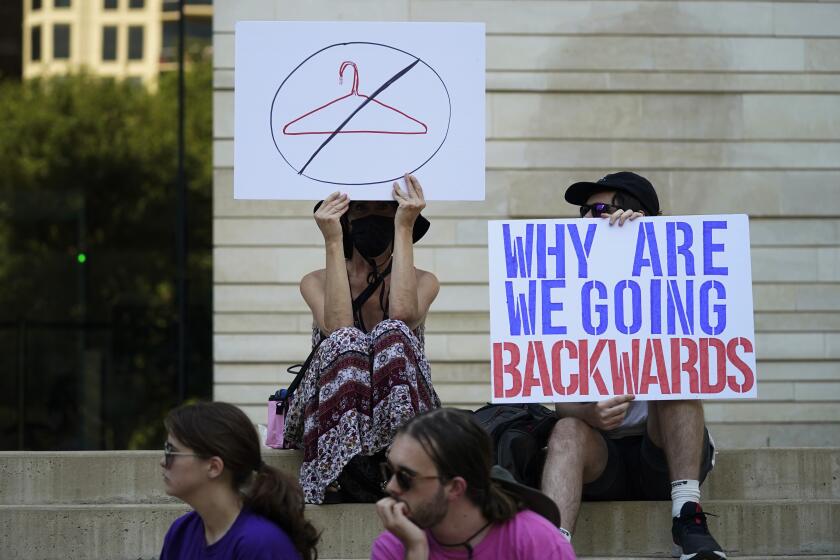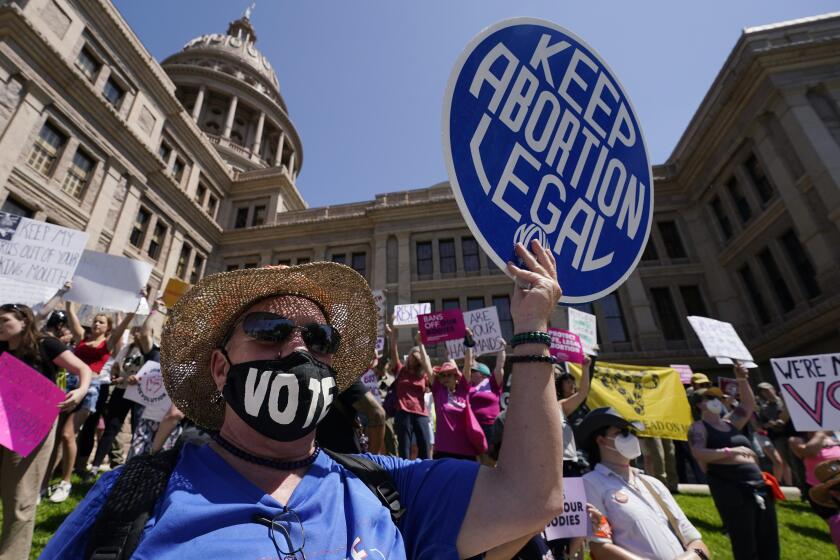Kentucky woman seeking court approval for abortion learns embryo no longer has cardiac activity

- Share via
FRANKFORT, Ky. — A pregnant woman in Kentucky who filed a lawsuit demanding the right to an abortion has learned her embryo no longer has cardiac activity, her attorneys said Tuesday.
The plaintiff’s attorneys signaled their intent to continue the challenge to Kentucky’s near-total abortion ban, but did not immediately comment on what effect the development would have on the lawsuit.
The complaint was filed last week in a state court in Louisville. The plaintiff, identified only as Jane Doe, was seeking class-action status to include other Kentuckians who are or will become pregnant and want to have an abortion. The suit filed last week said she was about eight weeks pregnant.
The flurry of individual women petitioning a court for permission for an abortion is the latest development since Roe v. Wade was overturned last year. The Kentucky case is similar to a legal battle taking place in Texas, where Kate Cox, a pregnant woman whose fetus has a fatal condition, launched an unprecedented challenge against one of the most restrictive abortion bans in the U.S.
A year after the Supreme Court overturned Roe vs. Wade, leaving abortion decisions to states, where is abortion banned or protected? What comes next?
But unlike the Texas case, little is known about the Kentucky plaintiff. Her attorneys have insisted they would fiercely protect their client’s privacy, stressing that Jane Doe believes “everyone should have the right to make decisions privately and make decisions for their own families,” Amber Duke, executive director for the ACLU of Kentucky, said last week. Her legal team also declined to disclose whether Jane Doe still needed an abortion.
Instead, Jane Doe’s attorneys urged other women who are pregnant and seeking an abortion in the Bluegrass State to reach out if they are interested in joining the case. The lawsuit says Kentucky’s near-total abortion ban violates the plaintiff’s rights to privacy and self-determination under the state constitution.
“Jane Doe sought an abortion in Kentucky, and when she could not get one, she bravely came forward to challenge the state’s abortion ban,” Brigitte Amiri, deputy director of the ACLU’s Reproductive Freedom Project, said in a statement. “Although she decided to have an abortion, the government denied her the freedom to control her body. Countless Kentuckians face the same harm every day as the result of the abortion ban.”
Attorneys for a pregnant Texas woman who sought court permission for an abortion in a challenge to a ban say she has left the state to obtain the procedure.
According to court documents, Jane Doe had a medical appointment on Dec. 8 — after the lawsuit was filed — where no cardiac activity was discovered when an ultrasound was performed.
In the Texas case, Cox, a 31-year-old mother of two, had been seeking court permission to end her pregnancy in a state where abortion is only allowed in narrow exceptions when the life of the mother is in danger — not for fetal anomalies. Before the Texas Supreme Court on Monday rejected Cox’s request, her attorneys said she had left the state to get an abortion elsewhere because she could not wait any longer due to concerns that continuing her pregnancy would jeopardize her health and her ability to have more children.
While Cox is believed to be the first to make such a request, her legal team and other experts anticipate other challenges among the dozen of other GOP-controlled states where abortion is largely prohibited at all stages of pregnancy. Meanwhile, a handful of separate legal challenges are taking place across the country highlighting the stories from women who were denied abortions while facing harrowing pregnancy complications.
Earlier this year, Kentucky’s Supreme Court refused to halt the state’s near-total abortion ban and another law outlawing abortion after the sixth week of pregnancy. The justices focused on narrow legal issues but did not resolve larger constitutional questions about whether access to abortion should be legal in the state.
Pregnant woman whose fetus had a fatal diagnosis is granted permission to obtain an abortion in an unprecedented challenge to the state’s ban.
The legal challenge revolves around Kentucky’s near-total “trigger law” ban and a separate six-week ban — both passed by Republican legislative majorities. The trigger law, passed in 2019, was designed to take effect if Roe vs. Wade was overturned, which occurred in 2022. It bans abortions except when they are carried out to save the life of the patient or to prevent disabling injury. It does not include exceptions for cases of rape or incest.
Kentucky voters last year rejected a ballot measure that would have denied any constitutional protections for abortion, but abortion rights supporters have made no inroads in the Republican-controlled Legislature in chipping away at the state’s anti-abortion laws.
As a result of the ruling, patient-led challenges “are our only path forward to strike down the bans under the right to privacy and right to self-determination,” Amiri said.
“We will do everything we can to restore abortion access in Kentucky,” she said.
Schreiner reported from Frankfort and Kruesi from Nashville.
More to Read
Sign up for Essential California
The most important California stories and recommendations in your inbox every morning.
You may occasionally receive promotional content from the Los Angeles Times.
















